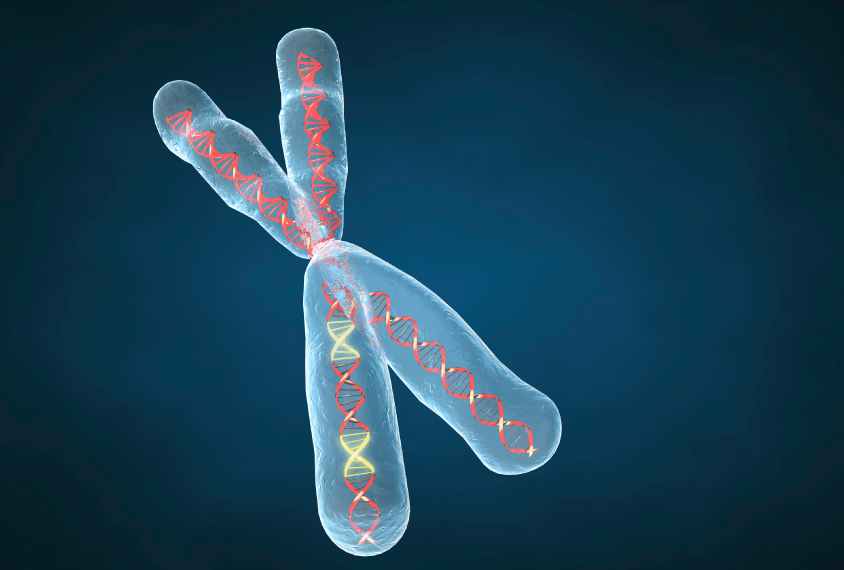
©iStock.com / cre8tive_studios
THIS ARTICLE IS MORE THAN FIVE YEARS OLD
This article is more than five years old. Autism research — and science in general — is constantly evolving, so older articles may contain information or theories that have been reevaluated since their original publication date.
Some people with an extra copy of the autism-linked chromosomal region 16p11.2 have no obvious symptoms, whereas others have autism, schizophrenia, severe cognitive impairment or below-average intelligence1. The first effort to examine this variability in intelligence suggests that other genetic factors, along with environmental ones, contribute to these individuals’ features.
The findings, reported 2 December in JAMA Psychiatry, also show that 16p11.2 duplication carriers who have autism tend to have lower intelligence quotients (IQs) than those without autism.
Many clinicians stop looking for genetic problems after finding a copy number variant (CNV) — a deletion or duplication — in the 16p11.2 region, says lead researcher Wendy Chung, associate professor of pediatrics at Columbia University. (Chung is also director of clinical research at the Simons Foundation, Spectrum’s parent organization, and the study is funded by the foundation.)
But the findings suggest the duplication on its own is not enough to produce a low IQ. “These findings tell me I should keep looking for other genetic explanations,” says Chung.
The findings also have important clinical implications. Some women undergo prenatal testing for 16p11.2 CNVs when there are signs of abnormal fetal development. “If you have a fetus or a young child with this duplication, it’s not a forgone conclusion that this child will have autism or intellectual disabilities,” Chung says.
Eventually, researchers hope to tailor behavioral or biological treatments to individuals with specific CNVs. But for now, the findings only highlight the vastly different clinical presentations that can stem from a single genetic change, says Catherine Lord, director of the Center for Autism and the Developing Brain at New York-Presbyterian Hospital, who was not involved in the study.
“One of the major implications of this genetics-first study, which offers some of the very best data of its kind, is that the interactions between genetics and behavior are complex,” Lord says.
Family affair:
The researchers studied 497 children and young adults with 16p11.2 CNVs. They also looked at the participants’ parents, siblings and extended family members, many of whom have CNVs in 16p11.2 but no obvious symptoms.
Altogether, 1,006 people underwent three days of psychological and neurological tests and brain imaging to assess intelligence, autism severity, brain function and more. The new study focuses on intelligence but is the first of many expected to emerge from the data.
Family members who do not have CNVs in 16p11.2 have average IQs, as expected. By contrast, those missing a copy of the chromosomal region have IQs roughly 22 points below average, confirming previous findings.
The researchers also noted unusually small head and body sizes in individuals with duplications in 16p11.2. These findings are in line with results from previous studies. But these individuals vary widely in intelligence: Most have IQs about 26 points below average, while some surpass average intelligence by about 40 points (although their IQs typically fall below those of their parents).
The researchers reexamined the data to see whether an autism diagnosis is associated with this disparity in intelligence. Only 20 percent of the duplication carriers have autism, but still a pattern emerged: Those with 16p11.2 duplications and autism tend to have below-average IQs.
In a separate study, published 10 November in Biological Psychiatry, researchers found that children with 16p11.2 duplications outperform family member controls with similar IQs on tasks that measure word recall2. By contrast, people who have deletions in 16p11.2 have trouble with language, verbal memory and the ability to filter thoughts before expressing them.
Chung’s team is following up on their own findings to determine whether other factors, such as additional mutations or exposures in the womb, contribute to low IQ and autism in individuals with 16p11.2 duplications.
By joining the discussion, you agree to our privacy policy.